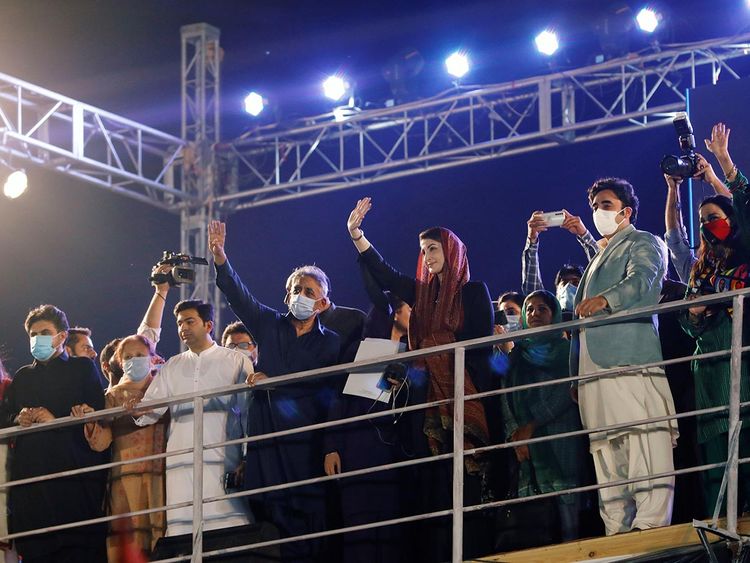
Some months ago, there was hope for Pakistan’s democratic system when an 11 member opposition alliance, the Pakistan Democratic Movement (PDM) came together. All key national and state level parties, including Pakistan People’s Party (PPP) and Pakistan Muslim League-Nawaz (PML-N) were part of the alliance. Today, that alliance is under threat. While there has been rumbling for some time within the PDM, most people hoped that the leadership of the parties would find some way to work together.
However, as a Dawn editorial points out, “the dispute over resignations symbolised the first crack within the opposition alliance, the disagreement over which party has claim on the office of the leader of the opposition in the Senate poses a graver threat to the unity of the alliance. After the defeat of PDM candidates in the election for chairman and deputy chairman of the Senate, it was expected that the scheduled long march would get a booster shot. Instead, the opposite happened.”
Further, “the ultimate threat of the PDM — hurled over and over again in the last six months — deflated like a punctured balloon. The PPP made it as clear as possible that it was not interested in resigning from the assemblies, saying that was the action of last resort and the time was not opportune for it. With the much-touted long march postponed, and the decision very conveniently outsourced to the PPP’s central executive committee, the PDM as an alliance stood on shaky ground. This before the next, and fairly unexpected, blow sent it reeling to the ropes.”
Finally, at the core of the PDM challenge is the “open and very public spat between the PPP and PML-N over who gets the post of leader of the opposition threatens to undo much of the goodwill generated by the opposition parties since the formation of the alliance six months ago. When PPP and JUI-F candidates were selected for the top two posts of the Senate, the PML-N was openly saying that their getting the slot of the leader of the opposition was a done deal. It therefore comes as a surprise that the new cleavage has manifested itself on this issue. However, it is clear that the PPP is not interested in being diplomatic with the PDM on what the party considers its core interests. It may have subsumed its partisan agenda within the folds of the grand PDM ambitions a few months ago, but the party leadership appears to have sensed that those ambitions are unlikely to come to fruition. It is therefore in the fitness of things, its leaders argue, that the PPP protect its power base in Sindh while maximising its political muscle within parliament in order to compensate for its weakness in the most strategically important arena: Punjab.”
![]()





